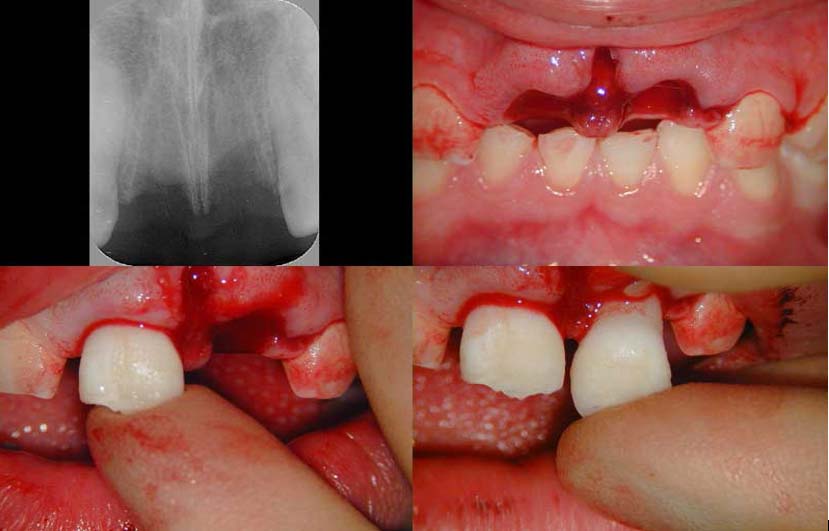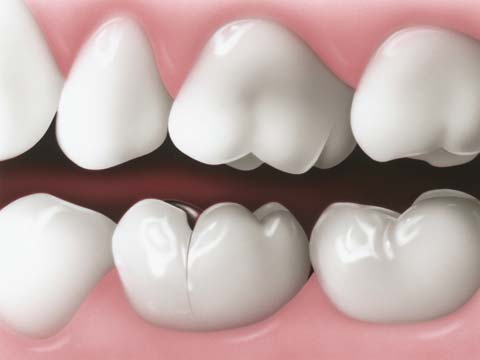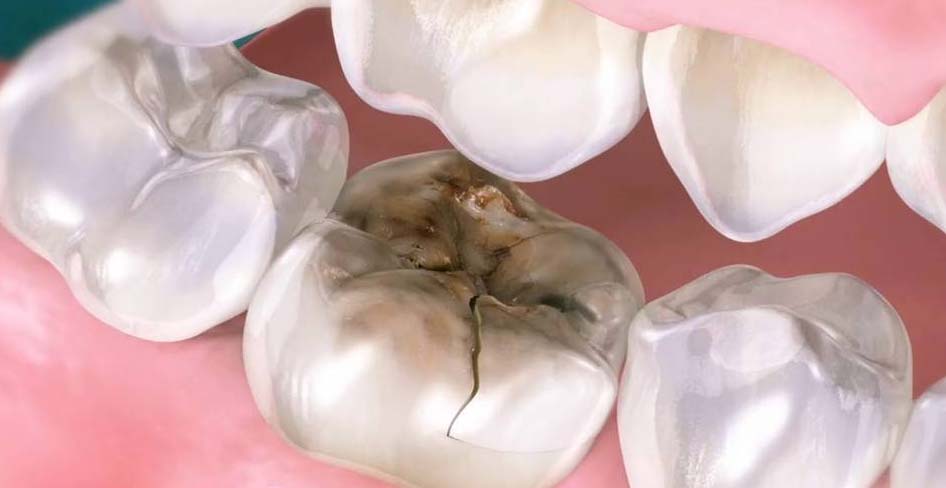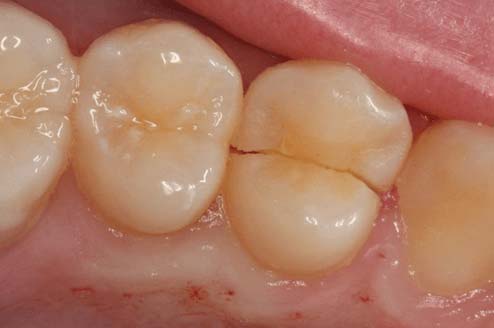Dental Emergency
It is important to know what kinds of injuries require emergency dental care, so you can make sure that your family's teeth are taken care of, while avoiding unnecessary trips to the emergency room. Accidents can happen at all times of the day or night. Some oral injuries may need immediate treatment, while others can wait until your dentist's normal business hours.
Some common types of mouth injuries include cracked, broken, or knocked out teeth, which can be a result of biting on a piece of food that is too hard, a sports-related injury, a fall, or any other type of accident. Depending on the severity of the injury and where the tooth is located, it is possible that a chipped tooth or minor fracture can wait for a call to the dentist during normal business hours.

While you are waiting, if the tooth is knocked out, try to handle it as little as possible. See if you can put the tooth back in the socket, biting down on moistened gauze or a wet tea bag can help. Be very careful not to swallow the tooth.While you are waiting, if the tooth is knocked out, try to handle it as little as possible. See if you can put the tooth back in the socket, biting down on moistened gauze or a wet tea bag can help. Be very careful not to swallow the tooth.
If you can't get the tooth to stay in the socket for the journey to the dentist or emergency room, rinse it off to get rid of any visible dirt and keep it in a container of milk or your saliva until a professional can see you. You can apply a cold, wet compress to help with any bleeding coming from the tooth socket.
Sometimes the problem won't be as clear-cut as a knocked out or broken tooth; you may find yourself dealing with severe tooth pain, from an abscess tooth, for example. If you think you need emergency dental care, call your dentist's office first. The office may be able to get you in for an appointment quickly, as dentists often leave slots in their schedules open for such emergency cases.
Even if you know the office is closed, go ahead and call. There may be an emergency number or instructions on the answering machine. If none of these options work, head to the nearest emergency room. The staff there can help determine whether the injury can wait for your dentist and can possibly provide pain medication to help alleviate symptoms in the meantime.
CRACKED TOOTH SYNDROME
Cracked tooth syndrome occurs when a tooth has a crack that’s too small to show up on X-rays, or is under the gum and challenging to identify. It appears most often on molars.
SIGNS AND SYMPTOMS
Most people experience cracked tooth syndrome as pain or discomfort when biting into food, or when teeth are exposed to hot or cold temperatures. The pain or discomfort won’t be constant, as with a cavity.

Cause
As with many conditions in the mouth, there’s no one reason for cracked tooth syndrome. However, some common causes include:
- People who grind or clench their teeth
- The way a person's teeth come together it can put too much pressure on one tooth, causing the tooth to crack
- Teeth with large fillings
- Teeth that have undergone root canal treatment
Treatment
There are several treatments options including bonding, placing a crown, performing a root canal or in severe cases extraction. The type of treatment your dentist recommends will depend on the location and severity of the tooth fracture, so it's best to schedule an appointment as soon as you suspect that you may have a crack in your tooth.

Complications
If the crack gets bigger, a piece of the tooth may break off. There’s an increased risk of developing an infection in the gum around the fractured tooth. You may notice a pimple-like bump on the gum near the tooth, an abscess. If you notice this, please see your dentist for an oral care evaluation.

Kondapur Branch
-
Mon-Sat
09:00 AM - 09:00 PM
Sunday
10:00 AM - 02:00 PM
Contact Info
-
+91 9963100600
- dentalkims@gmail.com
Secunderabad Branch
-
Mon-Sat
09:00 AM - 07:00 PM
Sunday
Only on Call
Contact Info
-
+91 9640100600
- dentalkims@gmail.com
